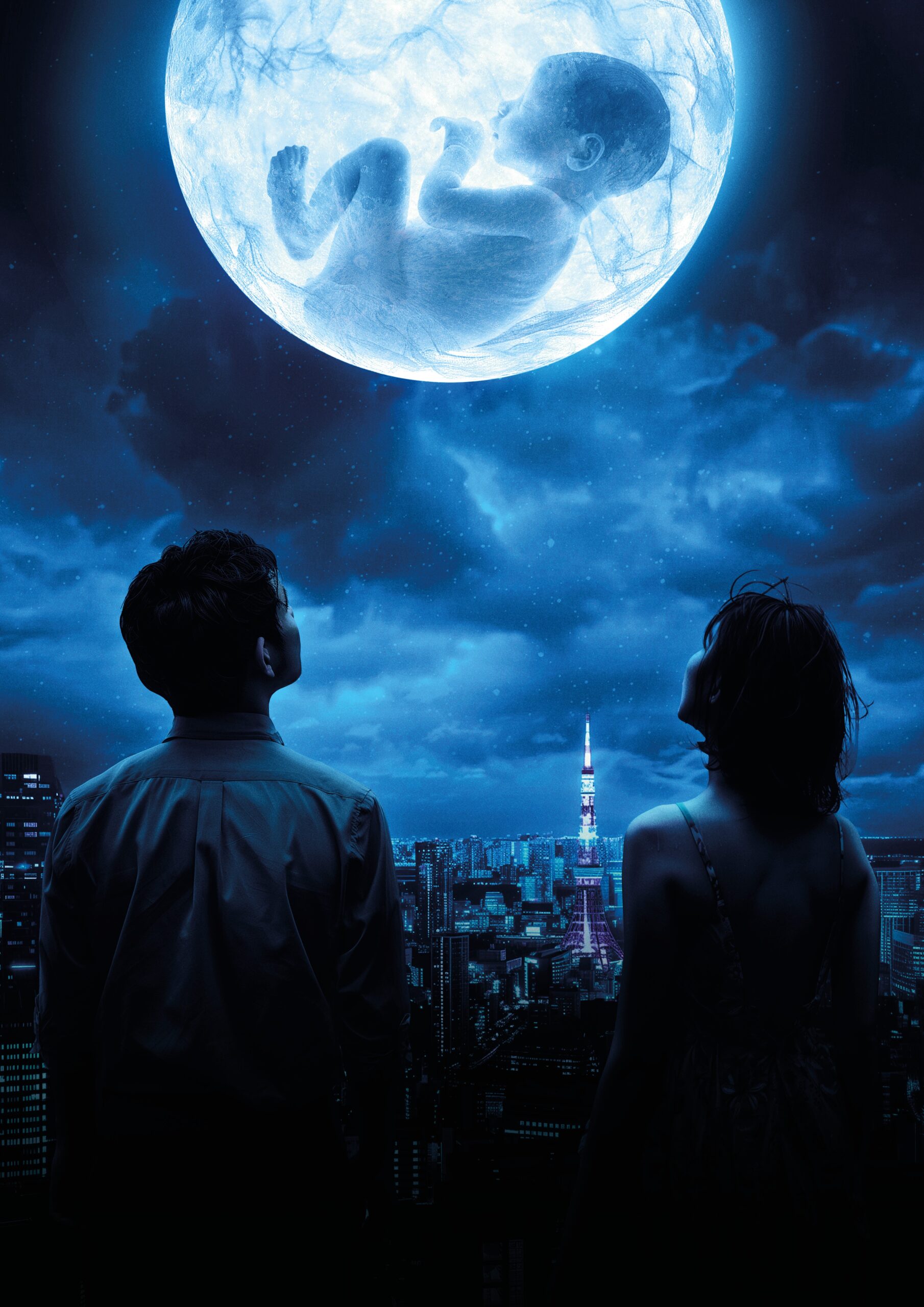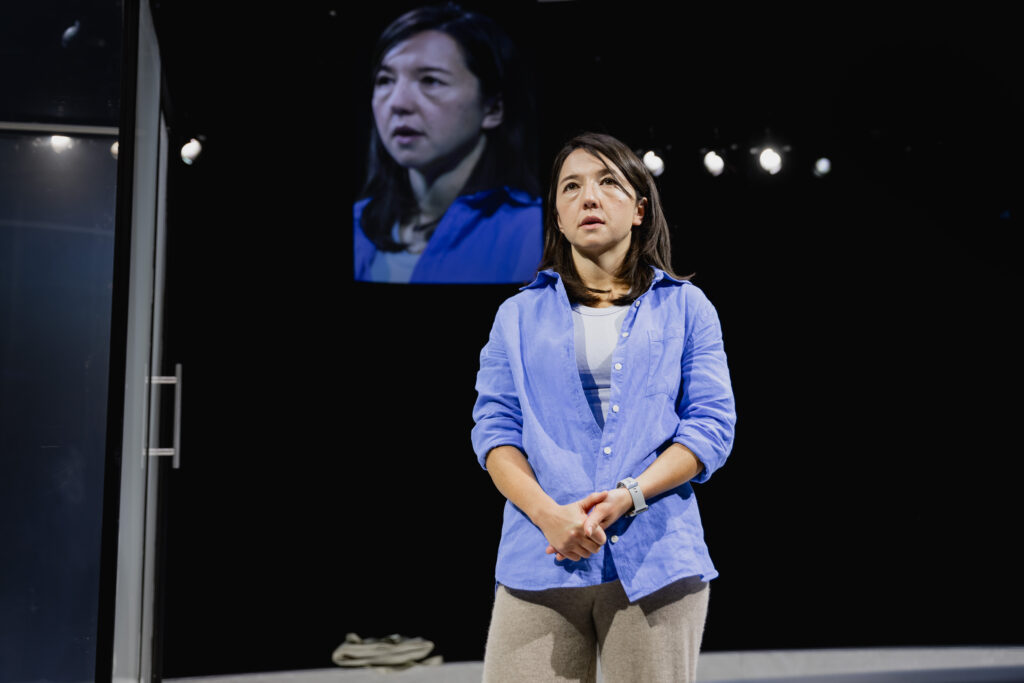
Regular musicals and their 2.5-dimension offspring based on Manga and Anime are the driving force in Japan’s stage entertainment world these days, powered largely by the handsome young men hired to star in them and the hordes of female fans they attract. That thriving business model is, however, not the only one flourishing on the nation’s drama frontier, with a unique new form of UK–Japan collaboration now also making its mark.
In January 2019, this movement began with an international project between the Charing Cross Theatre just next to London’s world-famous West End and the Osaka-based Umeda Arts Theatre. Back then the prominent director Shuntaro Fujita flew to London and worked with British actors to stage US musicals composer Jeanine Tesori’s 1997 work “VIOLET”, which had a successful 10-week run there prior to a triumphant Tokyo season with a Japanese cast.
Now, following in Fujita’s pioneering footsteps, this autumn sees two brand-new plays by young Japanese dramatists being performed successively at the venerable, 265-seat Charing Cross Theatre.
The first of those, running in October, was “One Small Step” written and directed by Takuya Kato who won the prestigious Kishida Kunio Drama Award in 2023. And now is the turn of “Tattooer” written by another 2023 Kishida Award finalist, Takuya Kaneshima, which has just opened there too.
In late September, Jstages.com had an exclusive interview with Takuya Kato as he was in London putting the finishing touches to “One Small Step” before it opened.
A fast-rising star of the contemporary Japanese stage, 30-year-old Kato — who is also busy in movies and TV as well as with his own Takumi theatre company — was eager to talk about his first collaboration with British actors in London, and of course also about his new work, “One Small Step”, which is set in a near-future Japan centered on an elite young couple’s argument over women’s choice between having baby or a career.
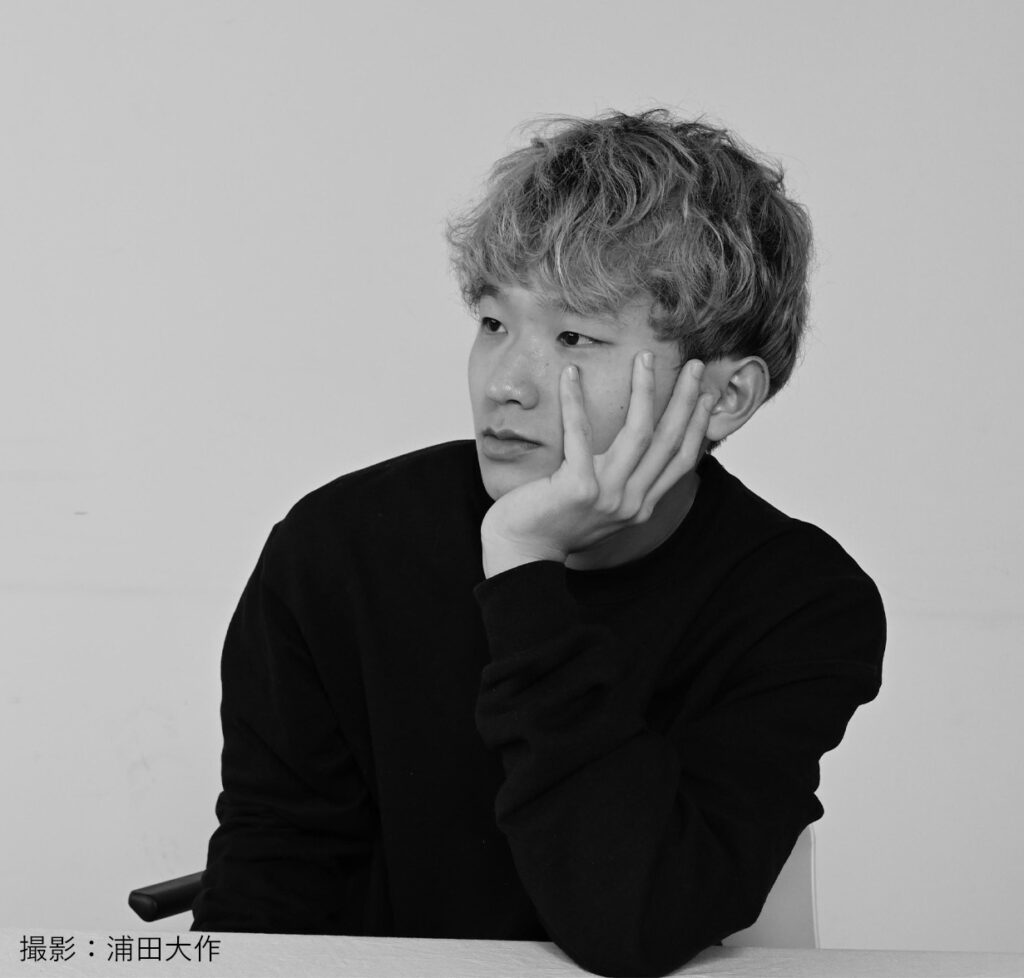
You famously had an experience working in Italy after you graduated high school. What did you actually do there?
When I was 18, I stayed in Italy for a short time making a music video about a Japanese artist living in London.
Fortunately, I had a chance to meet the musician this time. I thought it would be a great opportunity to talk about the past, so we met in a café. Surprisingly, though, I didn’t remember so much about things 12 years ago. My memory was quite fragmentary and blurred, so I could not remember some things even when he showed me a few pictures.
Do you think the experience in Italy has affected your life?
I don’t remember so much about that time, but I suppose the unhurried feeling there has had some influence on my current working style.
After you came back to Japan, you promptly attracted a lot of interest in the theatre world and became very busy as a playwright and director. In those circumstances, how did this project happen?
It started in 2019 before Covid. There were three candidate ideas, and two of them were for plays I wrote that a British director would present. In the end, however, those two were turned down and only “One Small Step”, which I planned to write and direct, was taken up.
Now, I have just started several international collaborations and theatre performances abroad, and in 2023 I wrote and directed the Franco-Japanese collaboration movie “Hotsureru” (“Fray”), while my Takumi company presented “Watako wa Motsureru” (“Watako was in a
Tangle”) in Taiwan. However, there are differences between my own projects and the company’s activity.
Why did you positively want to work outside Japan?
I have thought about how I could show my work to lots more people and also improve its quality, and that’s part of my reason for wanting to be active abroad. Also, I am thinking about how to know about more things than I’ve ever known before inside Japan. I want to create new things from my new experience.
Though I don’t believe language and cultural differences are necessarily obstructions or barriers to understanding a play, the character of language is obviously different between Japanese and English. For instance, the nature of Japanese requires listeners to grasp the speaker’s real intention, so they talk with communal assumptions as if both understand unspoken words. Meanwhile, English speakers discuss using language information only derived from actual words. So I wondered, and was interested in, what happens if we translate interactive Japanese-style presuming language into English.
As I am Japanese, my identity would not disappear from my writing even if the work was translated into English, and I don’t wish for that. In the end, I just continue to write my stories as I did before.
In an international collaboration, I enjoy working with actors who I’ve never been involved with before. They approach my text and my stories from entirely different viewpoints from mine. As a result of that, a new character is born and/or fresh relationships appear, and I enjoy such unexpected outcomes. On the other hand, I didn’t fundamentally change the way of rehearsal from what I did in Japan.
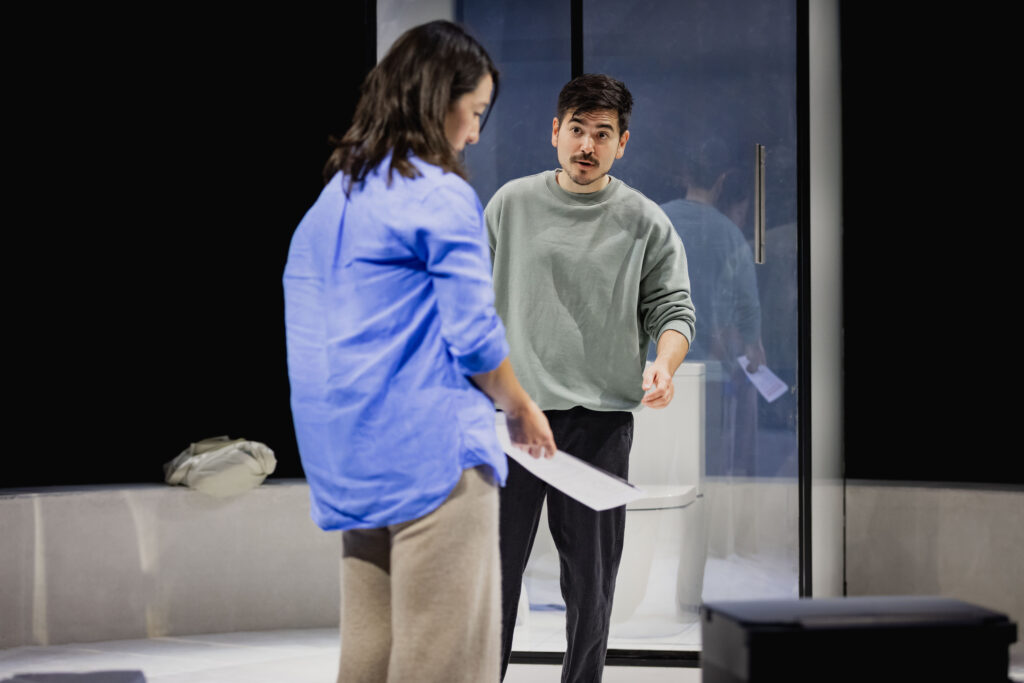
I heard that you visited London several times for this project. What kept taking you back?
Just like when I make a stage in Japan, it didn’t all happen at once. For instance, I wrote a draft first, then we did workshops with that and got feedback from the actors, and we thought it over again … and we repeated that procedure. We did such things here in London as it allowed us to spend longer on the preparations.
What would you say makes this stand out as a Takuya Kato play?
I can’t easily compare it with British theatre, of which there are many varieties, but I think the structure of my story is different from British plays. As I said before there is a difference between a play in Japanese and one in English in linguistic terms alone. Some audiences might be confused or feel stressed by such differences.
However, I hope audiences in London find interest in my story content and enjoy it.
I read that you wrote this play based on a friend’s experience of being under pressure to decide whether to have a baby or give it up to pursue her career instead.
I asked some English people, and I found out it’s still not an ideal society there where every woman can return to the same position in a company after giving birth. Publicly, many companies and people declare that they understand gender equality and want to make society
like that, but actually that’s not yet how it is. I feel many people avert their eyes from the reality because they haven’t anyone close who has given up a baby or their career. I think a society has a problem if it pretends to understand this and disregards such gender inequality.
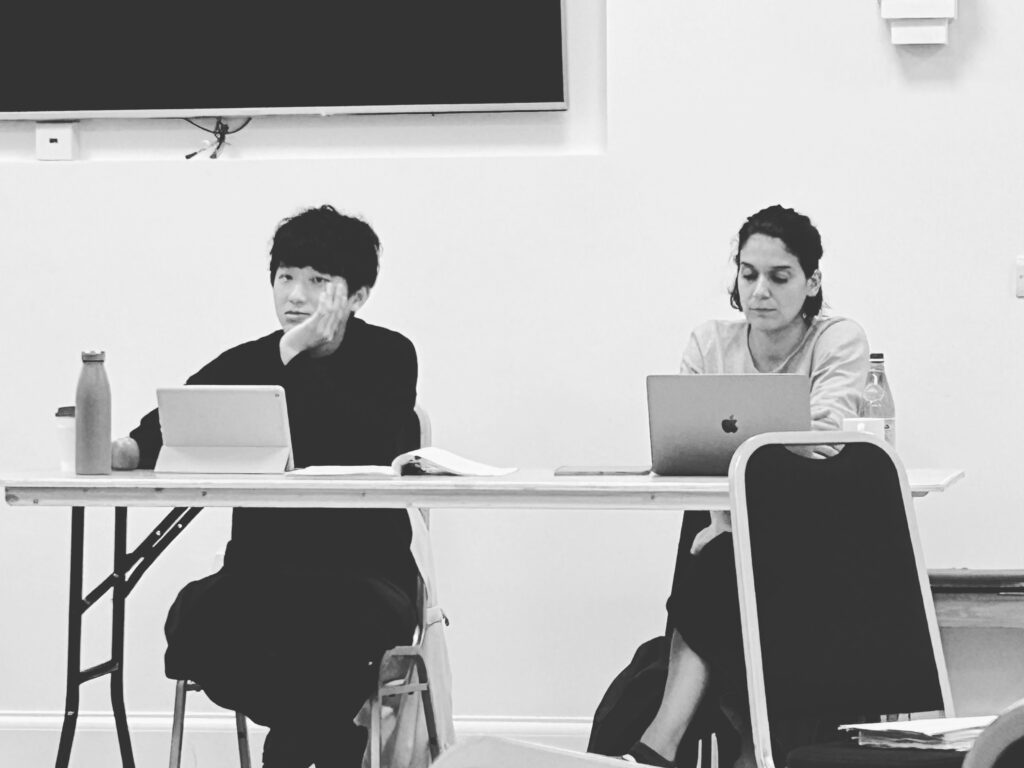
Do you have any methods and/or ideas you want to take back to the Japanese theatre world from London?
It was a great experience to see the English theatre creation world. The number of production meetings they have over a long period, and the ways of having rehearsal meetings are different, for example. I also think the way of working cooperatively here is very logical, and I want to take that to Japan. They repeat using trial and error to improve the work using the time effectively in the period from the preview to the press night.
What is your impression of British actors?
First, they have different ways of emotional expression. For example, they suddenly dance or sing after they practice a scene that made them stressed. That’s because they want to refresh themselves. I have never seen that in Japan. Also, I think they recognize more clearly than many Japanese actors do that this is their professional work.

Please give your message to the audiences.
This play is set in the near future in Japan, around 2040, probably it’s the time people are ready to move to the Moon. Some scientists predict that will happen around 2040, so it’s not SF and it’s a quite realistic story. It’s also very private about a couple, but it’s actually a universal story about inequality and the future because of such inequality.
“One Small Steps” ran from 27 September – 09 October 2024 at the Charing Cross Theatre in London

